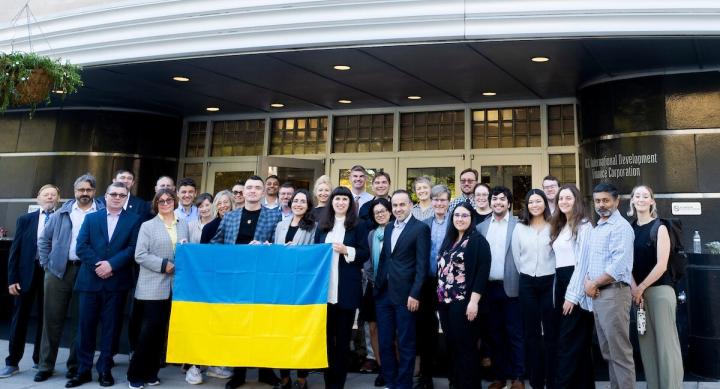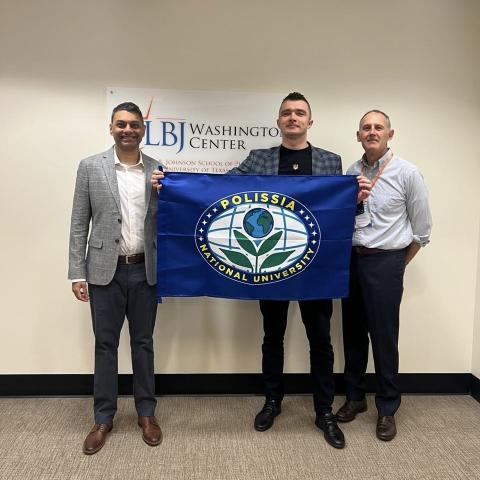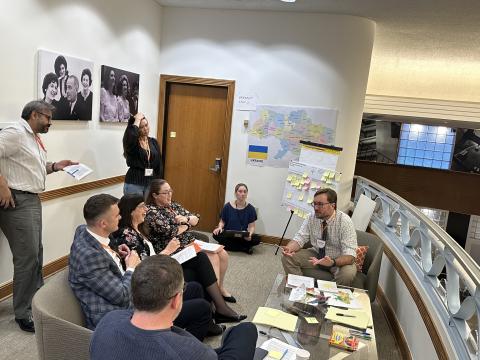
The Department of the Interior International Technical Assistance Program (DOI ITAP) and the U.S. Geological Survey (USGS), in partnership with the University of Texas at Austin LBJ School of Public Affairs, had the honor of co-hosting and convening the Climate Adaptation Scenario Planning Workshop for Ukraine’s Food Security.
Sachin Shah, Associate Adjunct Professor at the LBJ School, led the three-day workshop, held from October 22-24, 2024, at the University of Texas LBJ Washington Center, bringing together Ukrainian ministry officials, farmers, academics, non-governmental organizations and various agricultural experts for intensive and interactive discussions on the critical food security challenges for the future. Many of the Ukrainians who attended endured a 14-hour train journey from Kyiv to Warsaw, followed by a flight to Washington, D.C., to engage in critical solution-building to Ukrainian agricultural policy and food security amid the war.

The workshop was anchored in the idea of scenario planning, an approach to future planning and strategy that embraces co-participatory decision-making. In the case of Ukraine’s food security, which faces tremendous uncertainty, it encouraged participants to anticipate what might happen in the years ahead. By imagining these various possibilities, the idea is for Ukrainian ministries to become better prepared to deal with post-conflict challenges or opportunities ahead of them.
Ukraine faces agricultural risks under different climate scenarios amidst ongoing conflict. Discussions encompassed climate change, other factors impacting agriculture by 2030, prioritizing actions for future adaptation, and systems-level approaches to human, water, food, and energy solutions. Science and policy challenges were the focal point, with subsequent steps leading to engagement with the European Union Green Deal strategy and further scenario-building in Poland.

Breakout groups led by agricultural experts, economists and researchers from Ukraine served as an avenue to develop a portfolio of climate adaptation options to maximize agricultural productivity, water security, institutional capacity and science and technology development and accessibility. Overarching examples include:
- Develop alternative energy sources through multi-institutional planning
- Develop and leverage water-efficient technologies and innovative management strategies for precision agriculture
- Develop new seed varieties and soil management techniques
- Align Ukrainian agricultural techniques with European Union Green Deal requirements
- Address soil compaction and erosion in western Ukraine

